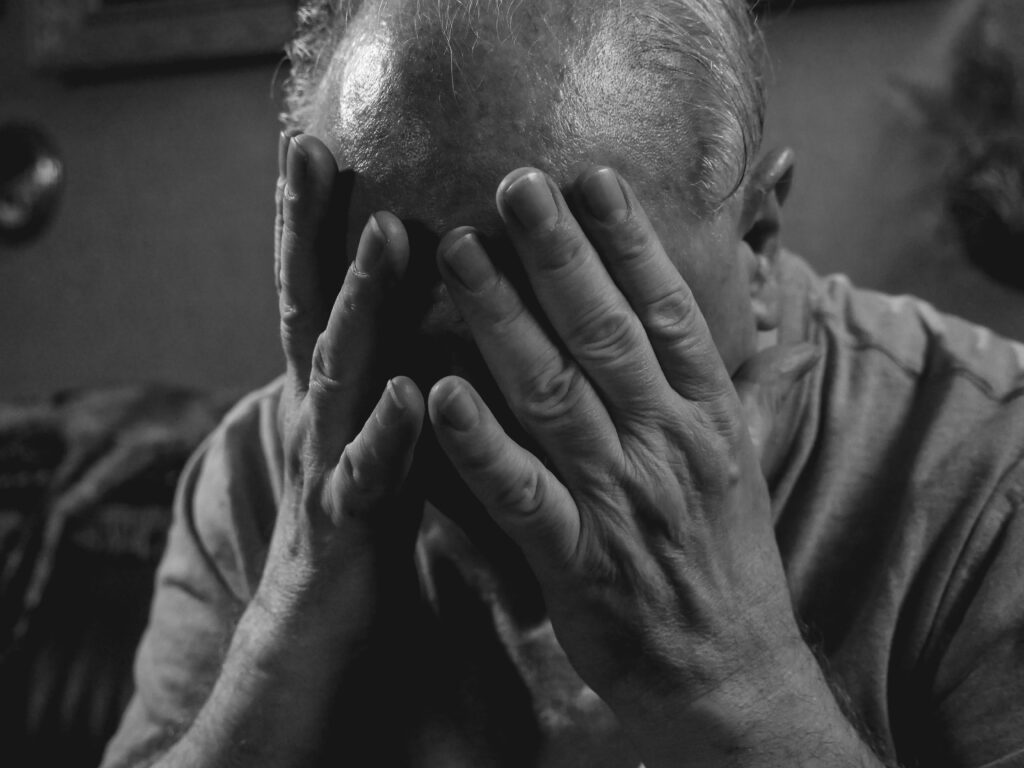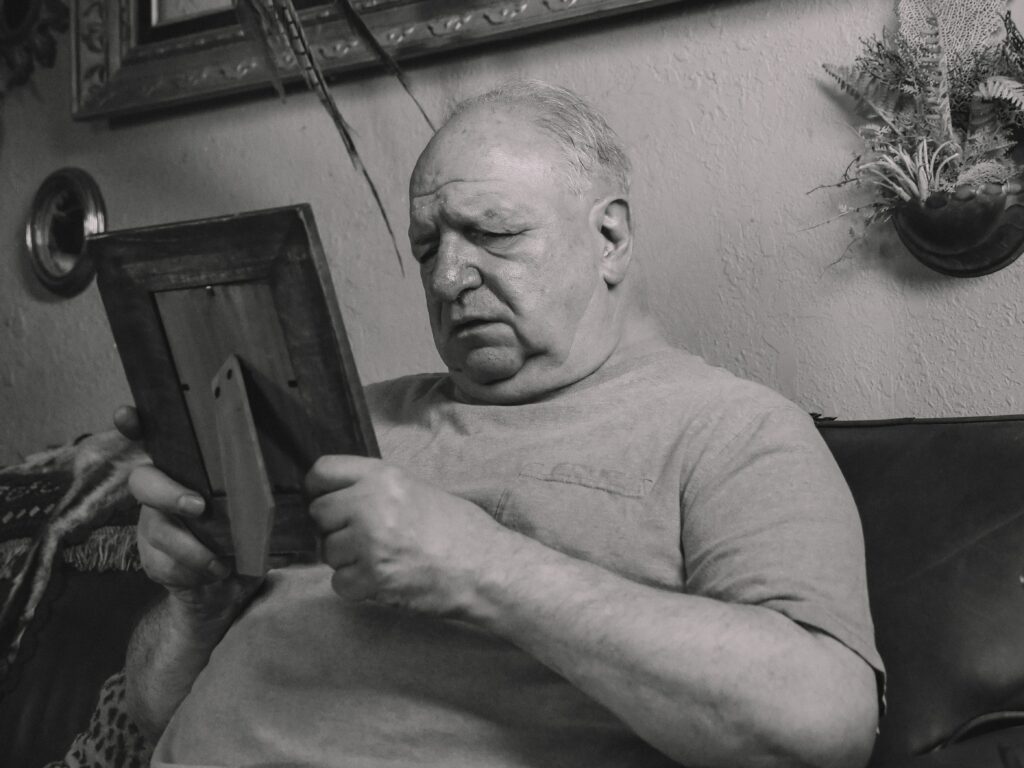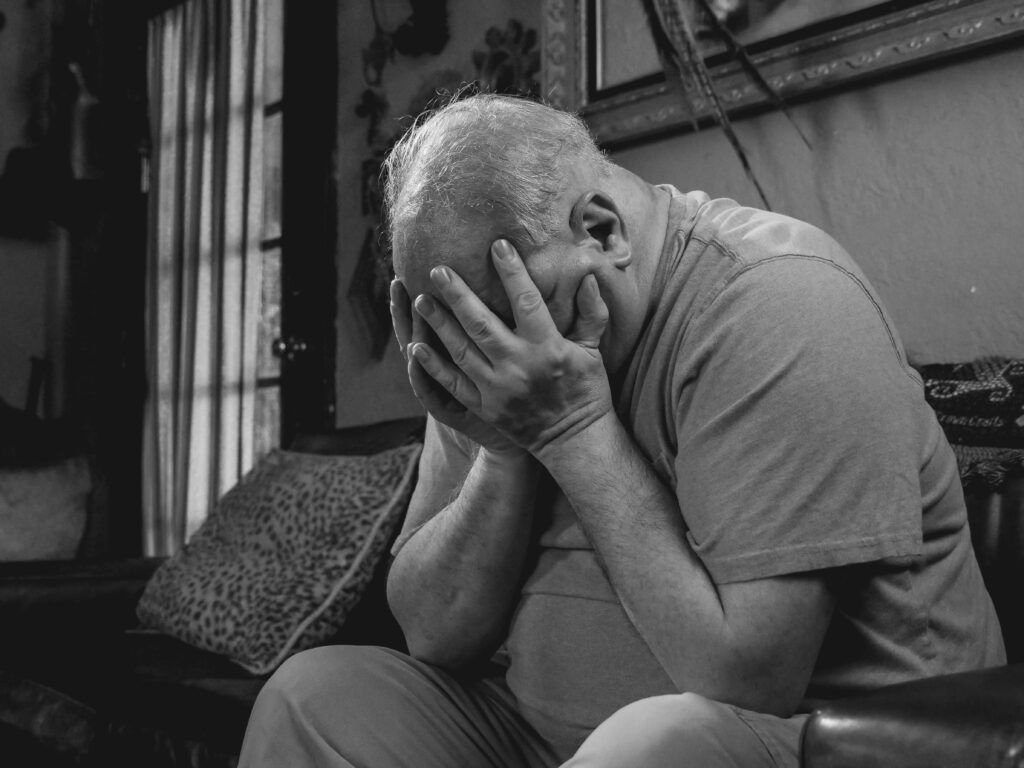Depression In Older Adults: Addressing Unique Challenges and Needs
Due to mental health issues or discomfort, depression in older persons may manifest differently and may be directly related to emotions of guilt, sadness, anger, resentment, and loneliness.
Read on to learn more about depression in older people, how to treat them, and the warning signals to look out for to avoid the problem from getting worse.
What Is Depression?
All ages are susceptible to depression.
Depression is a chronic medical illness and a mood disorder. It is characterized by prolonged emotions of depression, worry, and apathy that interfere with one’s ability to carry out daily tasks and linger for at least two weeks. Depression impacts how older adults feel and how they think and behave.
While it’s natural to feel low occasionally, if these feelings last for two weeks or longer or if they interfere with your ability to function in daily life, you may be depressed.
Older adults can mistakenly believe that dementia, poor health, or advanced age are to blame for their depressive symptoms. Some elderly individuals would rather not discuss depression because they feel ashamed or don’t want to confess they’re struggling. Tragically, this may cause them to put off getting help or delay it for a very long time.
When depression strikes a person over 60, additional medical issues are frequently present. It is uncommon for someone in good health to experience their first episode of depression around age 60, but it may happen.
Older Adult Attitudes Toward Depression
A Mental Health America poll on attitudes and views around clinical depression found the following:
- Around 68% of persons 65 and older have little to no knowledge about depression.
- Just 38% of persons 65 and older consider depression a “health” issue.
- Only 42% of older persons would seek treatment from a health professional if depressed, which is the lowest rate of any demographic.
- Those under the age of 64 are more likely than those 65 and older to mention depressive symptoms. A change in eating habits (29 % vs. 15 %), a change in sleeping patterns (33 % vs. 16 %), and melancholy (28 % vs. 15 %) are a few of these.
According to 58% of those 65 and older, developing depression at one age is “natural” for people.
Causes
Scientists are unsure of the precise causes of depression. But the following are a few of the possible contributing causes.
- Genetics – A family history of depression increases your likelihood of experiencing depression yourself.
- Stress – Stressful events like a loss in the family, a difficult romantic relationship, or difficulty at work can bring on depression.
- Mental Chemistry – Some people may be more susceptible to developing a depressive condition due to the concentration of certain substances in their brains.
In older persons, depression frequently coexists with other medical disorders. Even worse, depression can exacerbate these problems. Several drugs used to treat these conditions can have negative effects that may worsen depression.
However, it’s vital to remember that not all older individuals experience depression, and you shouldn’t have to accept that simply because you’re older, you’ll experience sadness or that your depression won’t be treatable.
Danger To Day-To-Day Life
An older adult’s health may also be negatively impacted by depression in other ways. Depression can create eating behaviors that contribute to obesity, or, on the other hand, it can result in a substantial loss of appetite and depleted energy, which can occasionally culminate in a disease called geriatric anorexia.
Memory loss and sleeplessness are more common among older persons who are depressed. Also, they react more slowly than usual, increasing the risks involved with driving, self-medication, and other activities that call for complete focus.
Primary Factors Contributing To Depression In Older Adults
Some common risk factors for depression in older adults include:
1. Bad Physical Condition
Depression can be brought on directly or indirectly by physical sickness. Health issues, including cancer, thyroid disease, vitamin shortages, and even infections, can alter how your body functions and result in sadness.
You may need extra assistance from others if you have other medical issues that are difficult for you to manage alone, such as arthritis and decreased mobility.
Depression can occasionally be brought on by losing one’s autonomy and dignity. Occasionally, your medications, particularly blood pressure medications, steroids, and pain medications, might contribute to depression.
2. Fears
Fear includes anxiety related to abuse, neglect, financial difficulties, and dread of mortality or dying.
3. Social Isolation
People may occasionally get cut off from their friends, families, or communities when they age. This can be because friends and classmates have passed away or they have trouble visiting others.
The COVID-19 pandemic has disrupted many people’s lives and may have kept them away from friends and family for an extended period, increasing their risk of developing depression.
4. Loss With Age
As they age, elderly adults frequently go through severe bouts of loss. This may mean losing loved ones or friends, their health, their pets, or their house. While some people manage these trying situations effectively, the recurring loss experience can occasionally lead to despair.
Signs Of Depression In Older Adults
Have you become bored with the hobbies you once loved? Do you frequently experience hopelessness and helplessness? Is it getting more difficult for you to get through the day? If so, you are not by yourself.
None of our past or accomplishments, depression may strike everyone as we age. However, the signs of aging depression can influence all facets of your life, including your energy, hunger, sleep, interest in your job, hobbies, and interpersonal connections.
Regrettably, many depressed older individuals don’t identify their depression symptoms or don’t take the necessary action to obtain the caregiving from their family as they require. Elderly depression is frequently disregarded for a variety of reasons, including:
- You could think you have a valid reason for feeling depressed or that aging-related sadness is common.
- There may be few others around to see your sorrow if you’re alone, which might cause sadness.
- You might be unaware that the physical difficulties you experience are symptoms of depression.
- You might be hesitant to express your emotions or seek assistance.
- It’s critical to understand that depression is not a natural aspect of aging nor an indication of frailty or a deficiency in one’s character.
Compared to younger adults and children, elderly persons exhibit various symptoms of depression. This may be due to long-standing stigmas associated with mental health, or some people find it difficult to acknowledge when they need help coping.
Physical problems are common in older individuals, but you might not be aware that your physical concerns are indications of depression. Symptoms could include:
- feeling lightheaded
- having aches and pains
- Weight loss,
- trouble falling or staying asleep or insomnia
Changes in behavior can also be noticed occasionally. This consist of the following:
- staying inside the home
- not taking pleasure in the activities they used to like
- avoiding food
- consuming more alcoholic beverages than usual
- hoarding pointless things
Thinking a lot about death is another indication of despair. Giving away personal items, amending your will, or frequently speaking about death are all possibilities. This should be taken extremely seriously since it may indicate suicidal thoughts.
Ask for Help And Support
See a doctor if a family member has displayed depressive symptoms for two weeks or longer or if you are worried that you could be depressed. They will check you for depression and work with you to create a treatment plan for your mental health. This is a plan that outlines your treatment objectives and lists the resources and services that are at your disposal.
Get Diagnosed
Your doctor will inquire about your health and emotions if they believe you are depressed. Your physician might also:
- Do a physical exam.
- Tests should be taken to ensure that depression does not result from another medical condition. For instance, your doctor could search for indications of a stroke, dementia, hypothyroidism (an underactive thyroid), vitamin B12 deficiency, or anemia.
- Enquire about your suicidal ideas.
However, with older adults, depression is frequently overlooked. This might be due to the following:
- Individuals can believe that sorrow or despair comes with becoming older.
- Sometimes the signs of sadness in older persons resemble those of other illnesses. Depression could so be unnoticed.
- Many older persons use a variety of medications, and some of these medications may produce symptoms that are comparable to those of depression. Consider asking your doctor to check on your medication regimen.
- Older persons may not seek depression treatment.
If your doctor thinks that other health professionals should be involved — such as a psychologist or psychiatrist specializing in treating older people — they can refer you to someone who can help.
How To Assist An Older Adult Suffering From Depression
Although aging is a natural part of life, sadness does not have to be. The mental and physical effects of depression can be mitigated and prevented, by early identification, diagnosis, and therapy.
The following points should be taken into account while treating depression in an older adult:
1. Be Mindful Of Physical Restrictions
Urge older adults to speak with a doctor before changing their diet or starting any new activity that could test their stamina.
2. Be Considerate Of Individual Choices
Older adults may be hesitant to embrace new habits or engage in activities that their younger friends find immensely delightful because they tend to be less open to lifestyle changes.
3. Be Diplomatic
When approaching a psychologist who specializes in aging concerned for assistance in developing a personalized plan to manage depression. A senior with low self-esteem may view encouragement from others with the best of intentions as additional evidence of their failing health. Others may resist any attempts at intervention.
Many older adults experience stigma around sadness and may believe it is a character flaw rather than a real medical illness. Encourage them to talk to their doctor and let them know that just because they are older, their depression is still treatable.
Conclusion
You may help an older adult you care about who is depressed by providing emotional support. Be patient and kind as you hear what your loved one is saying. Being there to listen to someone is enough; you don’t have to try to “cure” their melancholy.
Instead of critiquing the sentiments voiced, highlight the truth and provide encouragement. Another way you can assist is to ensure your loved one has a proper diagnosis and treatment. Choose a decent doctor with your loved one’s assistance, go with them to appointments, and provide emotional support.






